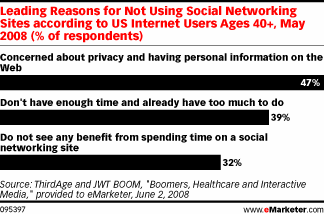The truth is, many Internet marketers sometimes have the tendency to be over-eager, earning the industry a less than stellar reputation. More than a few have tried to change this perception over the years with honest-to-goodness value propositions, and for that I applaud them. However, there are those who still insist on turning a profit on deceptive, irritating methods like spamming. Where traffic is, so spam goes, and right now the prime targets are social networks.
A study reveals that over the past year, over 80% of social networking site users have “received unwanted friend requests, messages, or posts on their social or professional network profile.” These friend requests, of course, are just ways to point users to phishing sites, malware sites, or unwanted ads. There may be a lot of money to be had this way, but it ruins the very platform that feeds it.
The disenchantment over MySpace and consequent mass migration to Facebook over the spamming problem, among others, should be enough of a reason to pause and reflect. The study also says that about 2/3 of respondents would consider switching to other social networks if the spam became too invasive. In another study, 39% of baby boomers, an affluent market, said they shy away from social networks because of privacy concerns.

Social networking users signed up to connect to other people, not to be scammed or shown unsolicited ads. It’s highly possible to make money off of these types of sites, but the marketing approach should be tailored accordingly. I’ve read someone comparing it to a “gentle courtship”, and I suppose that’s a good way to put it. There are plenty of Internet marketers who’ve had success by being genuine and forging relationships with people in Facebook. Two good resources for this are Facebook Payday and Why Facebook?. Try and have a look at them. They may give you some fresh ideas.








